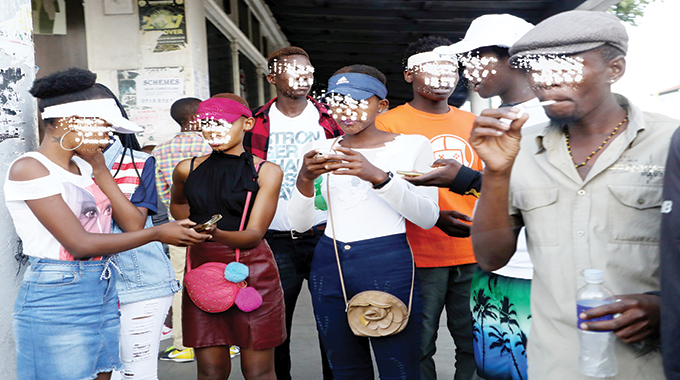Nip it all in the bud

Stephen Mpofu
So far, the children of Zimbabwe have made the motherland proud by scaling up Africa’s academic mountain and scoring a whopping 90 percent-plus literacy rating, just shy of basking in the warm tributes of the world standing at the very pinnacle of scholastic excellence.
The outstanding performance in point does not relate to functional literacy – the art of learning to read and write and then perform mandate tasks in one’s life-time. On the contrary, the outstanding performance by Zimbabwean scholars is about the acquisition of knowledge and wisdom which empower people with technical, economic and political skills et cetera, et cetera to move a people along a clear road and onto a brave new future for any nation so driven by an unflinching determination to reach the zenith of its development ambitions.
Now, however, growing prospects for reversing any achievements made so far in the social and economic spheres threaten a serious slump by our nation, not sideways but smack on our faces with guffaws from both our erstwhile admirers and from all-weather political and economic rivals in the global village and interspaced with: “Ah, so their boasts about phenomenal success in their education were not genuine but mere gimmicks akin to make-believe antics such as demonstrated by little boys and girls playing husband and wife around tiny mud houses in the courtyard of their parents homes.”
All the messy rhetorical stuff about Zimbabwe is caused by drugs, illicit drugs finding their way into the blood streams of young people and dimming their mental faculties and with that their focus on roles they ought to play as viable human instruments for emancipating their country economically, politically and socially.
For instance, teachers’ labour union leaders are known to be gravely worried about some of their members who now “arm themselves” when going to school for protection from pupils high on drugs.
The leaders have expressed fears that Zimbabwe’s youths are fast taking after their counterparts in a neighbouring Sadc country that they identified and where teachers carry arms to their workplaces because children there have become increasingly violent as a result of the drugs they take.
Here in Zimbabwe drug abuse has resulted in some people being bedridden while some have been killed and, worse still, others are in mental hospitals trying to recover from drug abuse, according to drug specialist and adolescent counsellor, Mr Mthandazo Ndlovu.
Mr Ndlovu also said recently that it was unfortunate that young people were engaging in vuzu parties and consuming drugs, while popcorn, super-cools and sweets laced with drugs were finding their way to schools and being exposed to children.
Obviously, these illicit drugs are not dropped from the air at night by planes to designated places where the children then pick them up.
If anything, the illicit drugs are trafficked by smugglers across Zimbabwe’s borders or by mail to designated contacts in the country.
Uppermost in the minds of those pushing the drugs is a quick buck and nothing more.
The drug barons would appear to know that parents of the children affected are incapable of socialising their offspring in the home to shield the children against drug abuse and other acts that not only impair the children’s clear vision about their role in society as responsible citizens, not to mention their fear of the laws of the land and of God’s wrath against sinners.
In the circumstances and as everyone truly knows that the sun rises in the East and sets in the West, not from the North to the South or vice versa, a Zimbabwe run by future generations of violent barons controlling rival drug cartels is doomed to failure.
However, hope for better rather than fear for worse has been rekindled by news of a drug rehabilitation centre planned for Cowdray Park, Bulawayo.
Mr Ndlovu said he hoped that the rehabilitation centre would go a long way in helping the nation stand up against the effects of drug and substance abuse.
The rehabilitation centre should enable the authorities to know precisely from the inmates where and how they obtained the drugs so that a vigorous crackdown against sources of supply, personal or otherwise is mounted – with parcels sent by post being scanned to reveal their contents — to clear society of those dangerous drug peddlers.
Meanwhile, the schools themselves should be empowered, helped by law enforcement agents, to deal effectively with pupils taking drugs in order to seal all loopholes through which their charges access the dangerous drugs and with parents also playing a pivotal role to safeguard the health and future of their offspring.
If no concerted efforts are taken by both the powers that be and the public at large, Zimbabwe might become a drugs paradise with a real possibility of it being ostracised by neighbouring countries.
This is precisely what is happening with, for example, relations between South America and its drug barons and North America, particularly the United States having an eye-ball-to-eye-ball relationship with people from the South being regarded as undesirable elements and therefore not freely allowed to travel to the States or Canada because of the South’s illicit drug reputation.
And so it will be a very sad development should our own Zimbabwe be regarded by its neighbours as a no-go area on account of rampant drug abuse in the event that a thriving illicit drugs environment, which begets violence, is not brought under control before it gets worse.








Comments